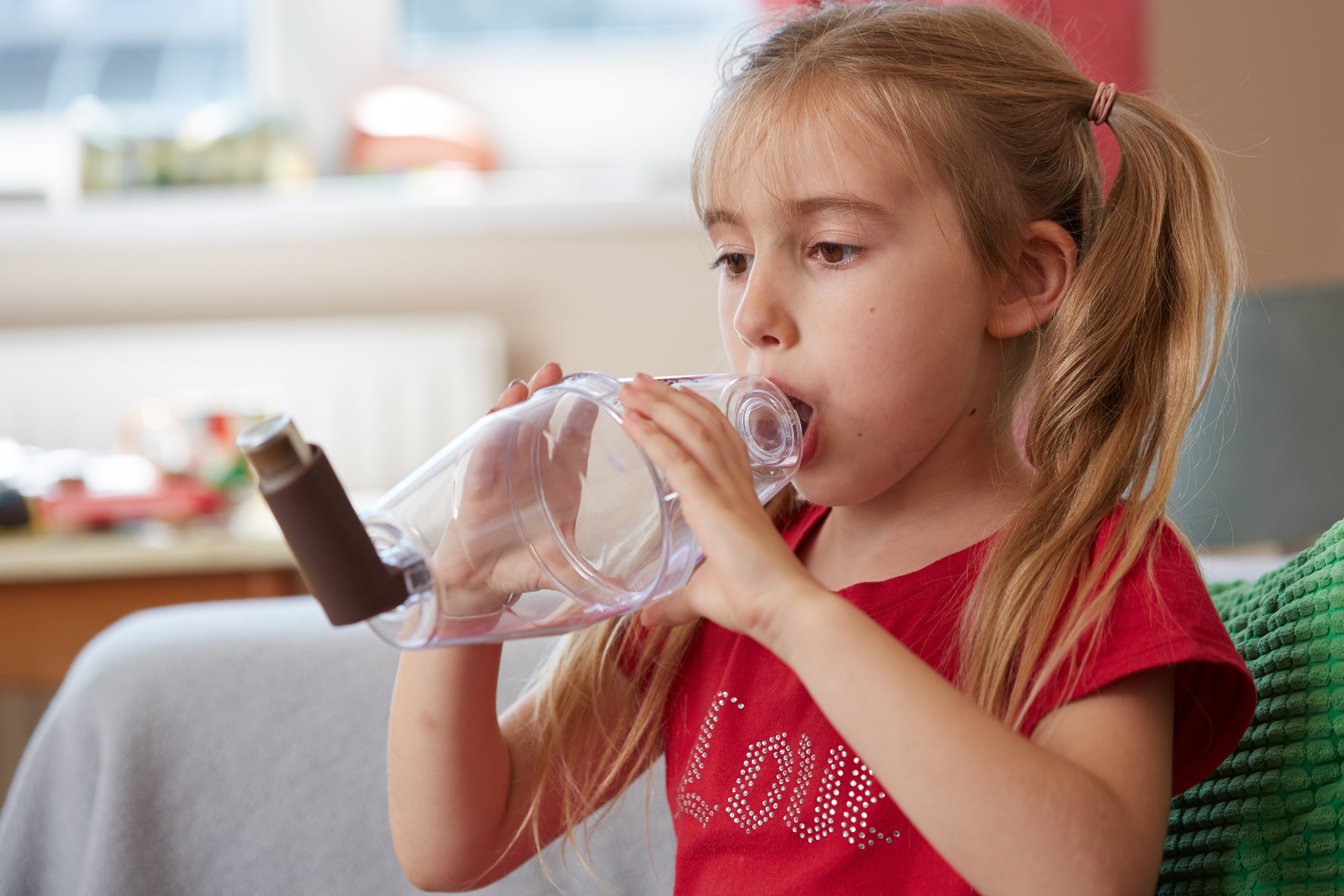Life-threatening asthma set to soar in children: 7 ways to prevent back-to-school attacks
Asthma and Lung UK has warned returning to school could cause a spike in asthma attacks. Doctors tell Lisa Salmon the best ways to avoid them.

Your support helps us to tell the story
From reproductive rights to climate change to Big Tech, The Independent is on the ground when the story is developing. Whether it's investigating the financials of Elon Musk's pro-Trump PAC or producing our latest documentary, 'The A Word', which shines a light on the American women fighting for reproductive rights, we know how important it is to parse out the facts from the messaging.
At such a critical moment in US history, we need reporters on the ground. Your donation allows us to keep sending journalists to speak to both sides of the story.
The Independent is trusted by Americans across the entire political spectrum. And unlike many other quality news outlets, we choose not to lock Americans out of our reporting and analysis with paywalls. We believe quality journalism should be available to everyone, paid for by those who can afford it.
Your support makes all the difference.The number of life-threatening asthma attacks is expected to soar over the next few weeks as children return to school.
Asthma and Lung UK has warned that every year there are huge spikes in hospital admissions for asthma attacks in September.
“September and October are the peak months for asthma attacks, when the weather becomes more cold and damp. Children go back to school and start sharing bugs and infections, and this increased exposure to viruses can trigger an asthma attack,” suggests Dr Atul Gupta, a consultant respiratory paediatrician at King’s College Hospital, London.
“These attacks can be life-threatening, but these tragedies are preventable.”
This is what children, parents and carers can do to help prevent back-to-school asthma attacks…
1. Make sure children take their preventer medication
“In the summer holidays there are less infections and less triggers around, and the control medication, which is an asthma preventer, can get forgotten and isn’t taken,” Gupta says. “It’s important the preventer treatment to control asthma is taken regularly – make sure children and young people take control of their medication and take it as prescribed.”
Dr Andrew Whittamore, clinical lead at Asthma and Lung UK (asthmaandlung.org.uk), says taking the preventer inhaler as prescribed “dampens down the inflammation in the airways that gets set off by triggers”.
2. Make sure children have an up-to-date asthma review
All asthmatic children should have an annual asthma review with a medical professional. This might be done in person, on the phone or on a video call.
“Once a year they should have a review, and if they haven’t had it they should contact their health professional to arrange it,” stresses Gupta.
3. Be aware of the warning signs
It’s vital that everyone who the child comes into regular contact with knows what the warning signs of asthma are, says Gupta.
“If children are getting short of breath and coughing, they may need to seek appropriate medical help,” he warns. “Parents being aware of the signs and seeking appropriate help is very important.”
4. Make sure their reliever inhaler is always to hand
Reliever or rescue inhalers, which are usually blue, work quickly to relax the muscles in the airways so asthmatics can breathe more easily. “It’s important that children have access to their reliever inhaler whenever they need it, as triggers and symptoms are unpredictable,” warns Whittamore.
Gupta adds: “If children have symptoms including a gradually persistent cough, struggling to breathe when sleeping, or asthma that’s getting worse, then they should take their rescue inhaler as prescribed in the asthma action plan.”
Asthma and Lung UK describes an asthma action plan as telling you and anyone with you what medicine you take every day, what to do if your symptoms are getting worse, what to do if you’re having an asthma attack and when to call 999.
5. Make sure the school knows your child has asthma
“Parents should inform the school at the beginning of the school year that the child has got asthma, and make sure a copy of the child’s asthma action plan is given to the school,” says Gupta.
Asthma and Lung UK recommends that parents ask their child’s doctor for an extra reliever inhaler to give to the school. It should preferably be in its original packaging, so the school can read the prescription label.
6. Be aware of your school’s medical conditions policy
Whittamore says: “Knowing your school’s medical conditions policy and [having] good communication is crucial. This is made easier with an asthma action plan and school card – both can be downloaded from the Asthma and Lung UK website.”
7. Eligible children should have a flu jab
“Children who are eligible should get a flu jab in October,” Gupta advises. “It’s the normal viral infections, rather than Covid, that are more likely to trigger asthma.”